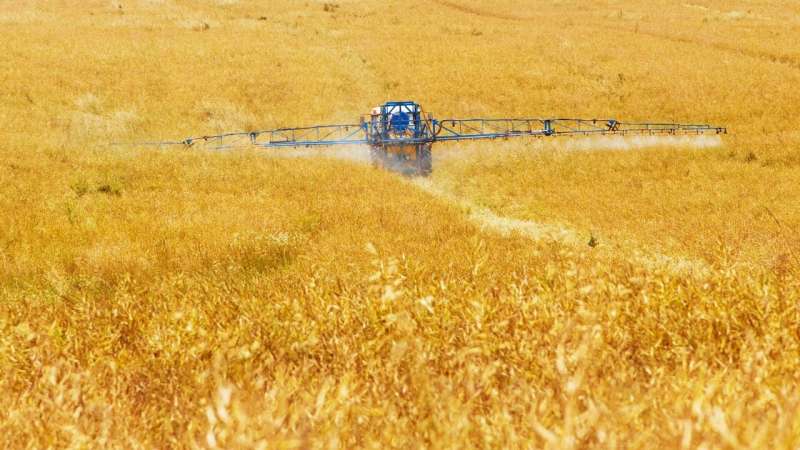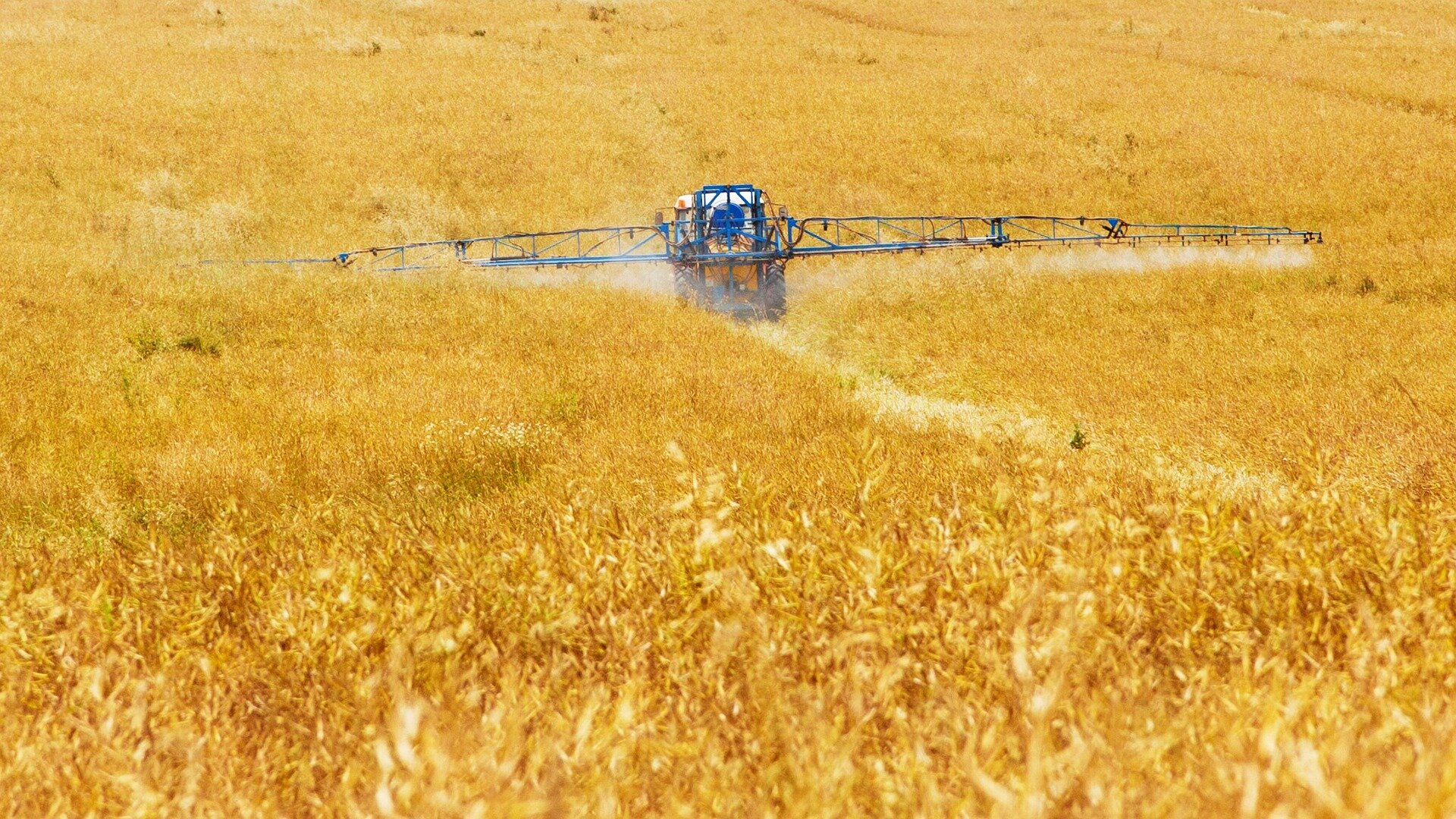
In a world where food safety is paramount, the emergence of groundbreaking technology is always welcome news! Enter the realm of new nanoparticle-based sensors, a game-changer in the culinary landscape. These innovative sensors have the remarkable ability to detect residual herbicides in meals, providing consumers and regulators alike with unprecedented insights into food safety. Let’s delve into this fascinating innovation and explore its implications for our dining experiences!
Two newly developed, low-cost exams that use nanoparticles to detect chemical compounds can precisely measure tiny quantities of two doubtlessly dangerous herbicides in fruits, greens and their merchandise.
Reporting within the journal Meals Chemistry, a Washington State College analysis group used two testing strategies to measure the degrees of two herbicides, particularly atrazine and acetochlor, in samples of apples, strawberries, cabbage, corn and fruit juices. The work reveals the real-world viability of their easy-to-use and cheap strategies of testing.
“We utilized this know-how for actual pattern detection—which is a vital step in shifting in direction of commercialization,” stated Annie Du, analysis professor in WSU’s College of Mechanical and Supplies Engineering and the precept investigator of the venture.
The Meals and Drug Administration (FDA) recurrently exams a broad vary of commodities for roughly 800 pesticide residues, and producers are required to maintain the chemical residues on meals beneath a sure degree that’s thought-about protected. The 2 herbicides the researchers measured are extensively utilized in crop manufacturing within the U.S. At excessive exposures, they’re doubtlessly poisonous for individuals and have been linked to a spread of maladies from allergic reactions to hormone disruption to most cancers.
Doing the testing, nonetheless, at present requires refined and costly devices in addition to a educated technician.
“We need to provide you with a low-cost methodology that can be utilized within the subject or within the laboratory,” stated Bernie Van Wie, corresponding creator on the paper and a professor in WSU’s Gene and Linda Voiland College of Chemical Engineering and Bioengineering.
Prior to now few years, the researchers have developed and patented their concept that makes use of nanoparticles of palladium and platinum to amplify the sign of molecules. The nanoparticles connect to an antibody, which acknowledges the chemical, after which stimulate the manufacturing of a sign. The amplification permits the researchers to know that tiny quantities of the chemical compounds are current and at what degree.
On this newest work, the researchers used the nanoparticles in two sorts of exams to measure two chemical compounds concurrently. The chemical compounds had been spiked into fruit and vegetable samples that had been pureed in a blender.
One of many exams makes use of the palladium-platinum nanoparticles to catalyze a response that causes a shade change in a pattern when the herbicide is current. The check may be finished utilizing a small unit that may be carried into the sphere. The opposite check the researchers developed makes use of the nanoparticle in a low-cost paper strip that appears like a COVID-19 or being pregnant check and may be learn with a smartphone reader.
The exams had been delicate sufficient to measure the chemical compounds all the way down to the utmost acceptable ranges and had been validated utilizing conventional testing strategies.
“We’re truly capable of detect beneath the utmost focus limits. If there’s any pesticide or herbicide within the pattern,” stated Van Wie. “That is good as a result of whereas this may be finished by different strategies, this methodology is low-cost and transportable within the subject.”
Extra data:
Eunice Y. Kwon et al, Simultaneous detection of two herbicides in vegatables and fruits with nanoparticle-linked immunosorbent and lateral stream immunoassays, Meals Chemistry (2022). DOI: 10.1016/j.foodchem.2022.133955
Unveiling the Marvels of Nanoparticle-Based Sensors
Nanoparticle-based sensors? You might be wondering what these tiny wonders are all about! Well, think of them as microscopic detectives, equipped with the extraordinary ability to sniff out even the faintest traces of herbicides lurking in our food. Harnessing the power of nanotechnology, these sensors offer an unparalleled level of precision, enabling us to identify and quantify residual herbicides with unparalleled accuracy.
How Do Nanoparticle-Based Sensors Work?
Ever wondered how these minuscule sensors accomplish such remarkable feats? It all boils down to their ingenious design and functionality:
- Nano-sized Particles: These sensors utilize nanoparticles, tiny particles with dimensions on the nanometer scale, which are specifically engineered to interact with targeted substances, such as residual herbicides.
- Chemical Detection: By exploiting the unique chemical properties of nanoparticles, these sensors can selectively bind to herbicide molecules, triggering detectable changes in various physical properties, such as color or conductivity.
- Signal Amplification: Once the nanoparticles detect the presence of herbicides, they generate a signal that can be amplified and quantified, providing us with precise measurements of herbicide concentration in food samples.
Applications in Ensuring Food Safety
Now, you might be wondering, “How can these nanoparticle-based sensors benefit me?” Well, the applications are as diverse as they are profound! Let’s take a closer look at how this groundbreaking technology is revolutionizing food safety:
Consumer Empowerment
With the ability to accurately measure residual herbicides in meals, consumers are empowered to make informed choices about the food they consume. Whether dining out or preparing meals at home, knowing the herbicide levels in food can help individuals prioritize healthier and safer options for themselves and their families.
Regulatory Compliance
For regulatory agencies tasked with safeguarding public health, nanoparticle-based sensors offer a powerful tool for monitoring and enforcing food safety standards. By swiftly detecting and quantifying herbicide residues in food samples, regulators can identify potential hazards and take proactive measures to mitigate risks, ensuring compliance with stringent safety regulations.
Quality Assurance in Food Production
In the realm of food production, ensuring the quality and safety of products is paramount. Nanoparticle-based sensors provide food manufacturers with a robust means of monitoring and controlling herbicide levels throughout the production process. By conducting regular screenings of raw ingredients and finished products, manufacturers can uphold the highest standards of quality assurance, safeguarding consumer health and trust.
FAQs: Demystifying Nanoparticle-Based Sensors
Curious minds often have questions, and we’re here to provide answers! Let’s address some frequently asked questions about nanoparticle-based sensors and their role in measuring residual herbicides in meals:
Q1: Are nanoparticle-based sensors safe for use in food testing?
Absolutely! These sensors are designed with safety in mind and pose no harm to consumers or food products. They are specifically engineered to target and detect herbicide residues with precision, without introducing any adverse effects on the food samples being tested.
Q2: Can nanoparticle-based sensors detect other contaminants besides herbicides?
While nanoparticle-based sensors are primarily utilized for detecting herbicide residues, their versatility allows them to be adapted for detecting a wide range of contaminants, including pesticides, heavy metals, and pathogens. Their customizable nature makes them invaluable tools for ensuring overall food safety.
Q3: How do nanoparticle-based sensors compare to traditional testing methods?
Unlike traditional testing methods, which may be time-consuming and labor-intensive, nanoparticle-based sensors offer rapid and reliable detection of herbicide residues in food samples. Their high sensitivity and specificity make them superior alternatives for modern food safety testing, enabling quicker decision-making and risk mitigation.
Conclusion: A Bright Future for Food Safety
As we bid adieu, it’s clear that the advent of nanoparticle-based sensors heralds a new era in food safety. With their unparalleled sensitivity and precision, these tiny marvels empower consumers, regulators, and food producers alike to uphold the highest standards of quality and safety in the food we eat. So, the next time you sit down for a meal, rest assured that thanks to these innovative sensors, your plate is not just delicious but also free from unwanted herbicide residues. Here’s to a healthier and safer dining experience for all!
With the integration of new nanoparticle-based sensors, the journey towards safer dining experiences takes a giant leap forward! So, let’s embrace this innovative technology and savor the peace of mind that comes with knowing our meals are free from harmful contaminants. Cheers to a future where food safety knows no bounds!
Quotation:
New nanoparticle-based sensors can measure residual herbicides in meals (2022, November 1)
retrieved 2 November 2022
from https://phys.org/information/2022-11-nanoparticle-based-sensors-residual-herbicides-food.html
This doc is topic to copyright. Other than any honest dealing for the aim of personal examine or analysis, no
half could also be reproduced with out the written permission. The content material is offered for data functions solely.

